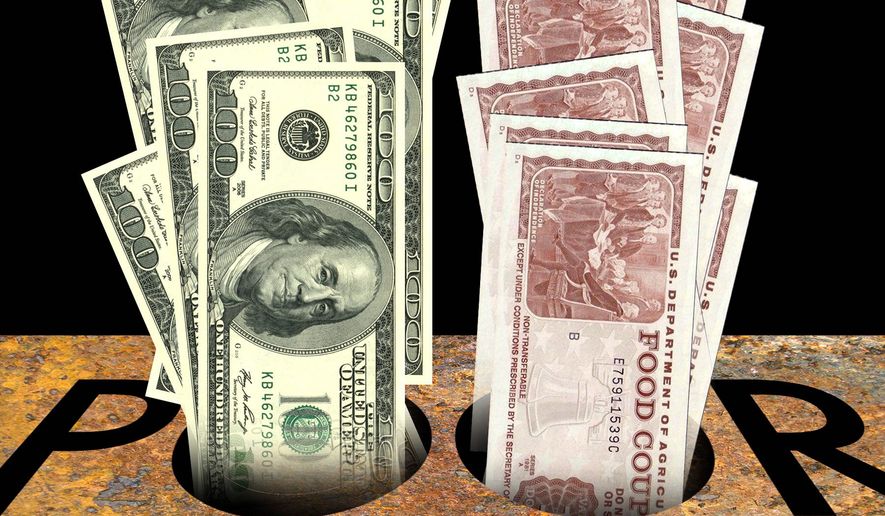OPINION:
Most presidential administrations, particularly the current White House occupant, tend to fudge economic numbers. It’s a habit that grows more extreme as election season approaches and rosy rhetoric fully displaces cold, hard facts. While this is mostly harmless boasting, there are a few fabricated figures that can have real impacts.
On Tuesday, the House Ways and Means Committee took a hard look at the National Academy of Sciences’ recommendation to loosen the official definition of poverty, a change that would radically expand the number of people considered poor.
Rep. Darin LaHood, the Illinois Republican who leads the House Subcommittee on Work and Welfare, explained the proposal’s hidden impact: “Numerous federal benefit programs tie eligibility to the Official Poverty Measure, and federal dollars are often distributed to states based on the number of families in poverty to target dollars where there is the highest need.”
Among the programs whose annual allotments are linked to the poverty measure are Medicaid, Head Start and the National School Lunch Program. The Biden administration, interestingly enough, recently proposed adding TANF — Temporary Assistance for Needy Families — to that list.
Inflating the poverty numbers automatically triggers substantial spending increases. The American Enterprise Institute estimates the impact on Medicaid and the Supplemental Nutrition Assistance Program (better known as food stamps) alone could boost spending by $124 billion over the next 10 years.
We’re stuck in a loop, spending more on poverty programs only to end up with more poverty because the government’s so-called safety net broke the link between work and reward. President Lyndon Johnson’s Great Society programs, which congressional liberals expanded and expanded and expanded through the 1980s, made it possible for able-bodied men and women to live off the government’s largesse.
Despite numerous warnings and repeated downturns in the data, so-called experts refused to listen to those who said the welfare system was too generous to people who didn’t need it. Instead of alleviating poverty, federal programs created a permanent subclass of citizens dependent on the government, spreading impoverishment across generations.
Things improved in 1996 with the landmark welfare reform law that reestablished a link between working and receiving benefits. For a while, that made a big difference. Then, in an effort to ease the pain experienced at the lower end of the income scale that began with the Great Recession, President Barack Obama loosened the work requirements that made welfare reform such a success.
Implementing the National Academy of Sciences’ recommendation would further sever the link, making things worse for those struggling to escape poverty.
We’re a generous nation. There’s plenty of money to provide temporary assistance to those who genuinely need it while also providing longer-term support for those unable to care for themselves. To do that, though, we’ll have to forgo the luxury of paying the able-bodied not to work, as we did through the pandemic.
That shouldn’t be hard to do, except the White House and its progressive allies will surely push back against what must be done every step of the way.




Please read our comment policy before commenting.